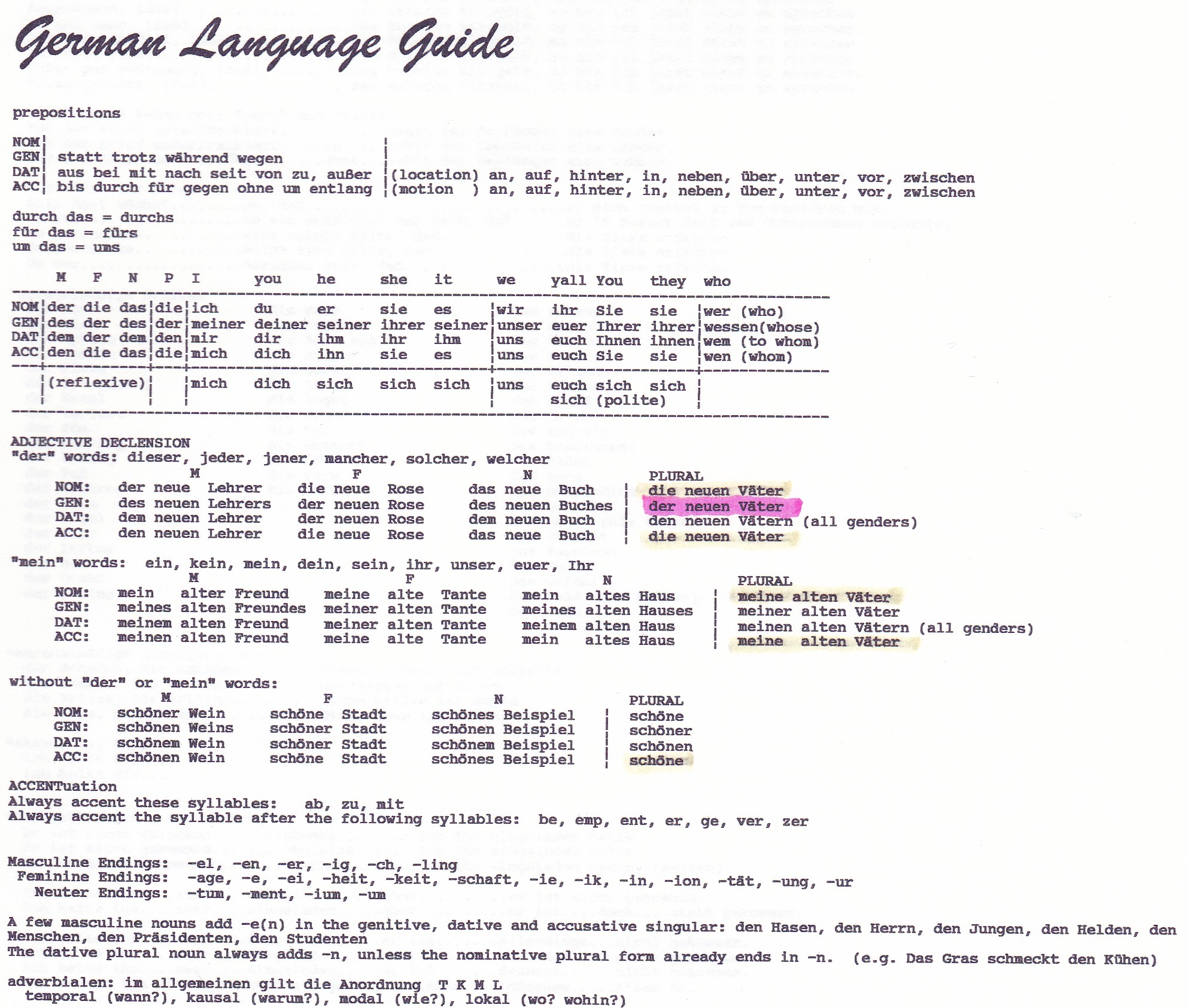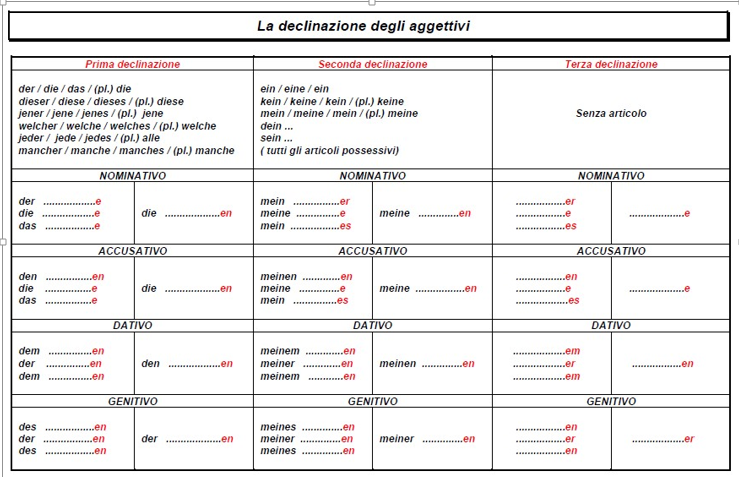Thanks Stovner, that is the kind of list I was looking for, BUT I actually found my old list from 1989 and scanned it in here, which is exactly what I was looking for, I think it is 100% correct, it's taken from all of the resources I had available at the time, glad to have it again, a larger copy is available here(dead link).

Source:
prepositions
NOM|
GEN| statt trotz während wegen |
DAT| aus bei mit nach seit von zu, außer | (location) an, auf, hinter, in, neben, über, vor, zwischen
ACC| bis durch für gegen ohne um entlang | (motion ) an, auf, hinter, in, neben, über, vor, zwischen
durch das = durchs
für das = fürs
um das = ums
M F N P
-------------------------------------------------------------------------------------------
NOM|der die das|die|ich du er sie es |wir ihr Sie sie |wer (who)
GEN|des der des|der|meiner deiner seiner ihrer seiner|unser euer Ihrer ihrer|wessen(whose)
DAT|dem der dem|den|mir dir ihm ihr ihm |uns euch Ihnen ihnen|wem (to whom)
ACC|den die das|die|mich dich ihn sie es |uns euch Sie sie |wen (whom)
-------------------------------------------------------------------------------------------
|(reflexive)| |mich dich sich sich sich |uns euch sich sich |
| | | | sich (polite) |
-------------------------------------------------------------------------------------------
ADJECTIVE DECLENSION
"der-words": dieser, jeder, jener, mancher, solcher, welcher
M F N PLURAL
NOM: der neue Lehrer die neue Rose das neue Buch | die neuen Väter
GEN: des neuen Lehrers der neuen Rose des neuen Buches | der neuen Väter
DAT: dem neuen Lehrer der neuen Rose dem neuen Buch | den neuen Vätern (all genders)
ACC: den neuen Lehrer die neue Rose das neue Buch | die neuen Väter
"ein-words": ein, kein, mein, dein, sein, ihr, unser, euer, Ihr
M F N PLURAL
NOM: mein alter Freund meine alte Tante mein altes Haus | meine alten Väter
GEN: meines alten Freundes meiner alten Tante meines alten Hauses | meiner alten Väter
DAT: meinem alten Freund meiner alten Tante meinem alten Haus | meinen alten Vätern (all genders)
ACC: meinen alten Freund meine alte Tante mein altes Haus | meine alten Väter
without "der" or "mein" words:
M F N PLURAL
NOM: schöner Wein schöne Stadt schönes Beispiel | schöne
GEN: schönen Weins schöner Stadt schönen Beispiels | schöner
DAT: schönem Wein schöner Stadt schönem Beispiel | schönen
ACC: schönen Wein schöne Stadt schönes Beispiel | schöne
ACCENTuation
Always accent these syllables: ab, zu, mit
Always accent the syllable after the following ones: be, emp, ent, er, ge, ver, zer
Masculine Endings: -el, -en, -er, -ig, -ch, -ling
Feminine Endings: -age, -e, -ei, -heit, -keit, -schaft, -ie, -ik, -in, -ion, -tät, -ung, -ur
Neuter Endings: -tum, -ment, -ium, -um
A few masculine nouns add -e(n) in the genitive, dative and accusative singular:
den Hasen, den Herrn, den Jungen, den Helden, den Menschen, den Präsidenten, den Studenten
The dative plural noun always adds -n, unless the nominative plural form ends in -n.
(e.g. Das Gras schmeckt den Kühen)
adverbialen: im allgemeinen gilt die Anordnung T K M L
temporal (wann?), kausal (warum?), modal (wie?), lokal (wo? wohin?)


